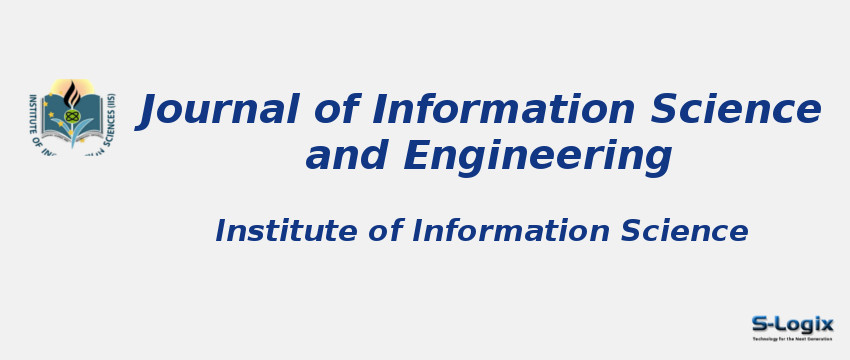Journal Home: Journal Homepage
Editor-in-Chief: Hsu
Print ISSN: 1016-2364
Electronic ISSN:
Abstracting and Indexing: Science Citation Index Expanded, Scopus.
Imapct Factor 2024: 1.142
Subject Area and Category: Computer Sciences, Library and Information Science, Civil Engineering, Mathematics
Publication Frequency: Bimonthly
H Index: 43
Q1:
Q2: Library and Information Sciences
Q3:
Q4:
Cite Score: 1.8
SNIP: 0.384
Journal Rank(SJR): 0.256
Latest Articles: Latest Articles in Journal of Information Science and Engineering
Guidelines for Authors: Journal of Information Science and Engineering Author Guidelines
Paper Submissions: Paper Submissions in Journal of Information Science and Engineering
Publisher: Institute of Information Science
Country: Taiwan
